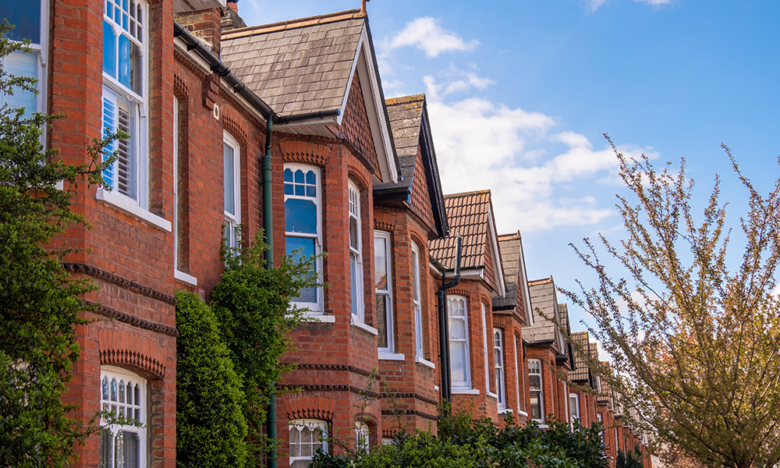
Leasehold Reform: Where Are We and What’s Next?
When the government announced plans to tackle the growing number of new build houses sold as leasehold rather than freehold and to limit ground rents on new lease agreements back in December 2017, many existing leaseholders began to have hope that their situations would soon improve too.
Almost six years later, and while discussions around reforms have continued, many leaseholders are still struggling with issues such as high fees and long timelines when it comes to extending their lease or when attempting to purchase the freehold, as well as a lack of transparency around service charges and other fees.
Although Secretary of State for Levelling Up, Housing and Communities Michael Gove spoke of wanting to scrap the leasehold system entirely earlier this year, this was quickly watered down, with his department instead saying it was “determined to better protect and empower leaseholders to challenge unreasonable costs”. What this looks like remains to be seen.
Why does it matter?
Unlike freeholders, leaseholders are hit with a whole host of additional charges, many of which increase on a regular basis, and they’ll never actually own their property. Instead, as the years on their lease count down, the property could actually drop in value, leading to more charges associated with extending or buying the lease.
Ground rents of £500 a year on modern flats are common, while service charges average £1,500 a year – rising to £2,000 a year in London, according to the HomeOwners Alliance. There is also no legislation capping how much service charges can increase by each year, making budgeting for these costs even trickier.
Many leaseholders will also be hit by administration charges for the simplest tasks, such as providing information, approving alterations, or even failing to pay ground rent or service charges.
Disappointment and frustration are evident among many leaseholders. The seventh annual HomeOwner Survey found that more than half of leaseholders say they have encountered problems with their leasehold property, with service charges and maintenance fees and a lack of control over which major works are done among the key concerns.
Managing Director Jack Pye, MRICS says “The lack of regulation around what managing agents and freeholders can charge continues to be a concern. There are a few things leaseholders can do to mitigate this impact as we wait for further reforms. Most notably, they should thoroughly check their lease to see if their ground rent is fixed or variable. If it’s variable, check when it’s next due to increase and how that increase will be calculated. Also, look at your service charge costs and what this covers. If you’re buying a flat with extensive communal facilities, this charge will be higher, so consider if you need these before you commit to buy.”
A brief history of leasehold reform
So, while there’s still work to be done on leasehold reform, it’s worth looking back at what has already been implemented.
Following that initial announcement in 2017, the Law Commission reviewed current practices around leaseholds and proposed a series of measures to improve the situation for leaseholders. Over the next couple of years, a number of consultations and reports followed, with hopes of serious reforms raised only for very little to happen.
It’s worth noting that in 2019, the Competition and Markets Authority also got in on the act, launching its investigation into whether ground rent clauses which doubled frequently breached consumer protection law. This led to several large freeholders agreeing to revise ground rent terms in existing leases to prevent them from doubling more frequently than every 20 years.
By 2021 it seemed like genuine progress was about to be made when the then Housing Secretary Robert Jenrick announced two pieces of legislation to make the system fairer. The first, the Leasehold Reform (Ground Rent) Bill, was enacted on 30 June 2022, banning ground rent for new leases. Once again, hope was raised of progress for those already living in leasehold properties, but it’s now become clear that further legislation may not be introduced and passed in the current parliamentary session. With a general election expected next year, many leaseholders may well be concerned that this will continue to drag on.
Jack says “The process of leasehold reform is moving at a very slow pace, leaving leaseholders facing growing bills and a lack of clarity on their service charges and ground rents, and putting them in a tricky position when it comes to deciding whether to extend their lease. With the Secretary of State for Levelling Up, Housing and Communities himself saying the system is unfair and ‘feudal’, it seems reasonable that those affected would like to see more affirmative action and quickly.”
What’s next for leasehold reform?
While the timelines may be vague, there are at least some clues as to what future leasehold reform could look like. According to the Law Commission, legislation will look to achieve improvements in a few key areas.
The first is the abolition of marriage values. When the lease is extended on a property, the chances are that the property will increase in value. The hypothetical profit the leaseholder could make is known as Marriage Value, and if a lease is below 80 years, this must be split with the freeholder. By abolishing this, anyone with a lease of 80 years or less who wants to extend will immediately benefit – possibly to the tune of thousands of pounds. There is some concern that the government would look to increase other costs associated with extending a lease, such as the deferment rate, usually calculated at 5%, to counter this, but nothing has been confirmed.
An online calculator has also been suggested to make it easier for leaseholders to find out how much it will cost to buy the freehold or extend the lease so they can plan accordingly. There is, however, currently no date set for the launch of the calculator, and there’s also no guarantee that the rates will be set in a way that is more favourable to leaseholders than the current situation. For example, if the deferment rate were reduced from 5% to 4%, the cost of extending a lease would increase significantly.
The new legislation would also enable leaseholders who already have a long lease to buy out the ground rent without having to extend the lease term. As the cost of adding years to an already long lease is pretty low, the benefits of this one aren’t immediately clear, although it may be possible to save some money by not having to extend a lease if a leaseholder chooses to pay to remove their ground rent. This won’t prevent the leaseholder from having to pay to extend their lease in the future when it’s no longer classed as a long lease, though.
Finally, the government has also committed to giving leaseholders of flats and houses the same right to extend their lease agreements “as often as they wish, at zero ground rent, for 990 years”. So, if a property had a 90-year lease, this could be extended to 1,080 years. On paper, this seems like a huge improvement that would give security to many leaseholders. In reality, however, the impact perhaps isn’t as significant as it may seem. While those on very short leases would benefit most, those with more years left on their lease would see very little difference, especially when the current cost of extending the lease on a £200,000 flat with no ground rent and 175 years remaining on the lease could be as little as £20.
When will these reforms happen?
This continues to be the million-dollar question. There is ‘hope’ in government circles that a Leasehold Reform Bill will make it into the last parliamentary session of this government, so Autumn 2023. It will then need to get through the legislative process before the next election – no mean feat for what is a long and complex bill. If it’s ready in time, it will be promised in the King’s Speech, part of the State Opening of Parliament in May 2024. Even then, there are more stages to go through. It will need to be debated in the House of Commons and the House of Lords and agreed by both houses. And, as former leasehold and building safety minister Stephen Greenhalgh said in a recent interview: “I’m just not sure that at the back end of a Parliament that that’s when you get the big set-piece reforms.”
If a general election is called in the meantime, there will be further delays, although the Labour Party has been very vocal in its plans to abolish leasehold altogether.
Earlier this year, Shadow Housing Secretary Lisa Nandy said: “We cannot have more delays or broken promises because of rows within government.
“Today, MPs from all parties can join Labour in voting to end the leasehold system, implement the Law Commission’s recommendations in full, and deliver long-overdue justice to millions of families.”
That being the case, 2024 could be the year of change many leaseholders have been waiting patiently for.
Should I extend my lease?
With such significant potential changes on the horizon, the question for many leaseholders is what they should do now and if they should wait to extend their lease.
Jack continues “It’s difficult to give definite advice here as everyone’s circumstances are different, and there are no guarantees there will be any further reforms in the next 6-12 months. If your lease is less than 80 years, it may be worth waiting to benefit from the potential changes to marriage value. For others, there may not be any immediate benefits from any reforms, and it could even be more expensive to extend, so if you’re looking to move or remortgage and you can’t with your current lease, it’s certainly worth looking into an extension, but be sure to seek professional advice.”

